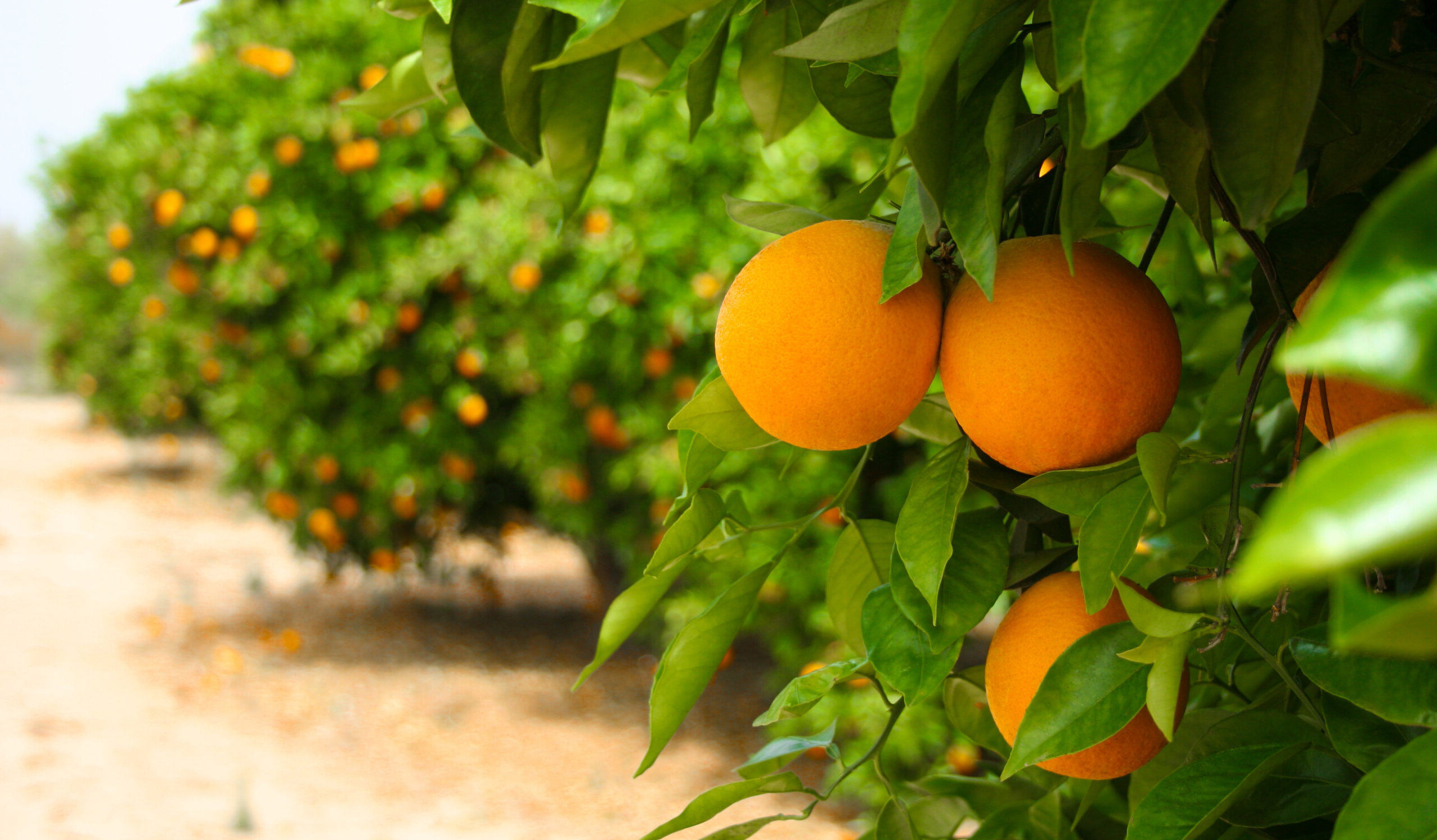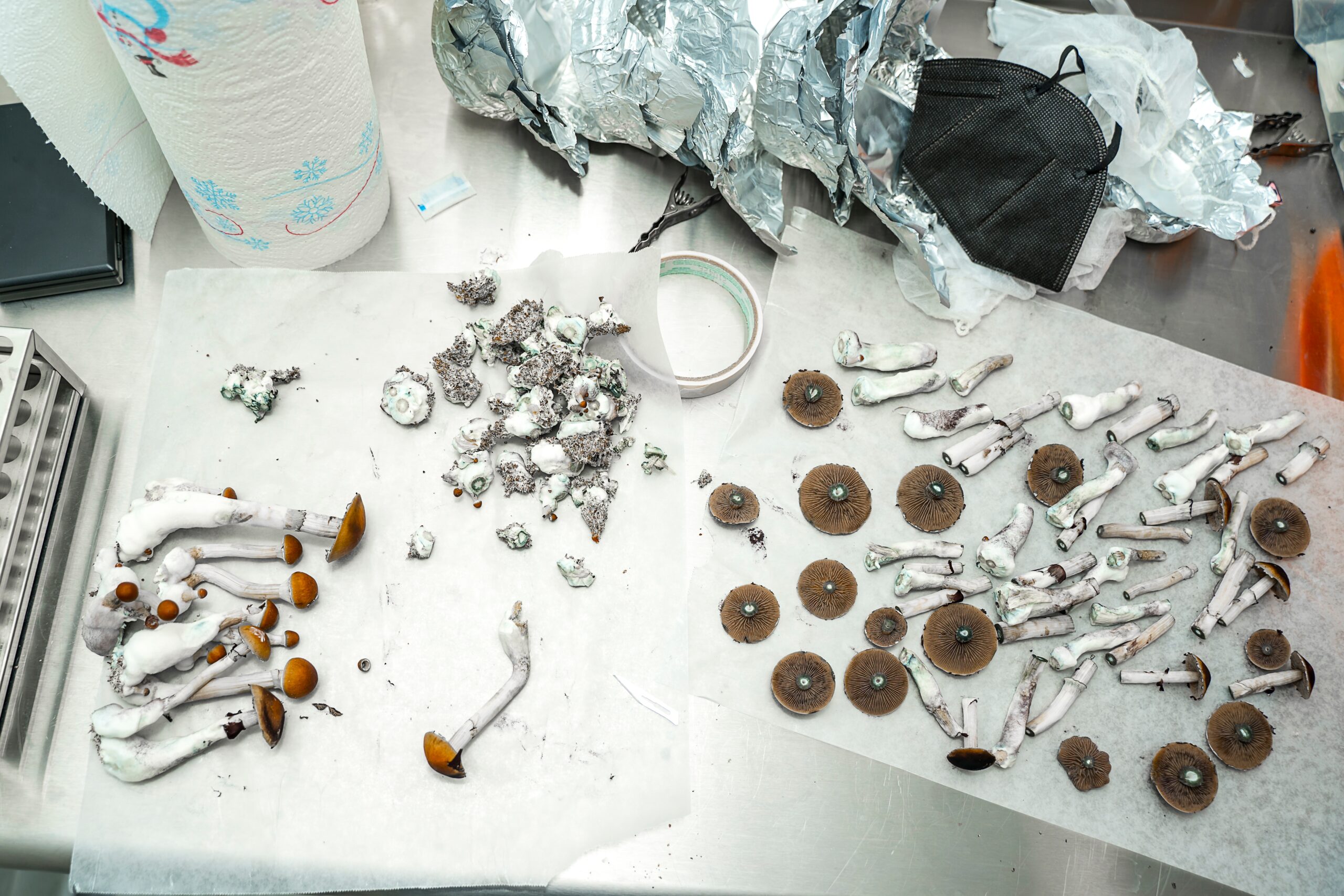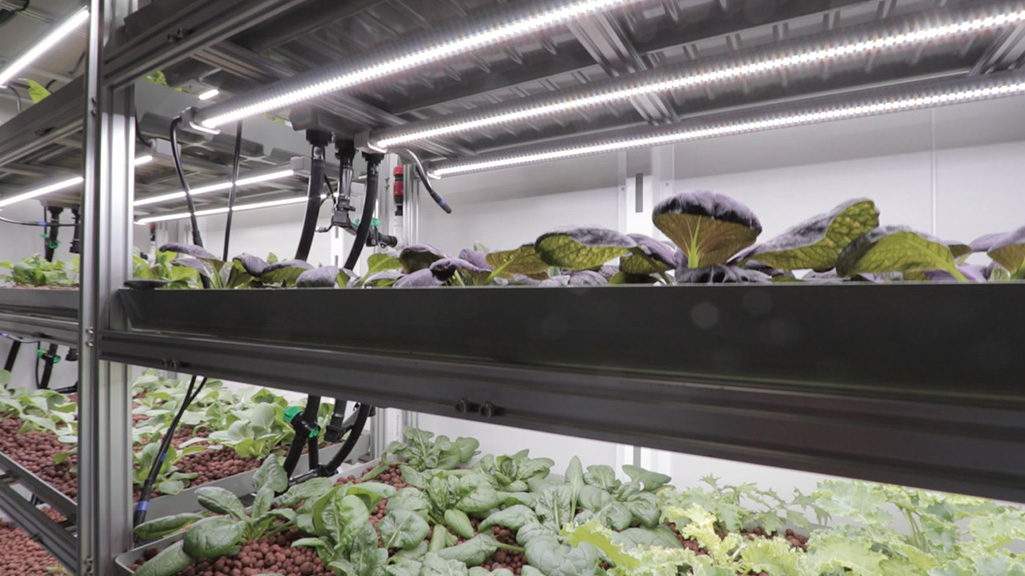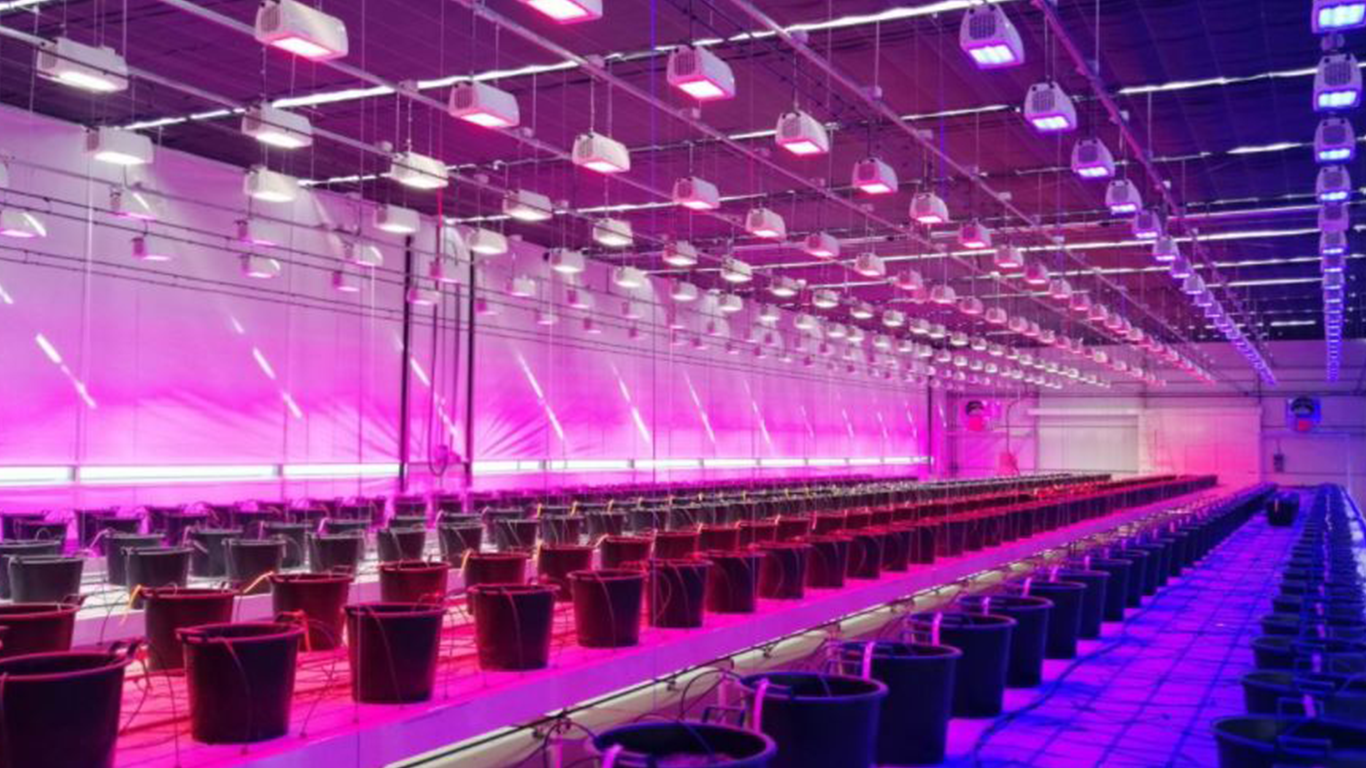Written by Rustin Wright, Biora Business Development Manager
It’s no secret that plants require sunlight to trigger photosynthesis which converts light energy into sugars necessary for growth.
Using walk-in and reach-in grow chambers with the appropriate grow lights allows plant scientists and growers to use these chambers to mimic the natural light a range of common plant types need to flourish, in addition to the conditions including temperature, humidity and CO2.
At MineARC, we design and manufacture custom engineered controlled environment chambers with grow lights designed specifically for growing various plants, such as citrus, arabidopsis, tobacco, and even cannabis. These grow chambers give growers the ability to precisely control their individual environmental conditions, providing the maximum amount of efficiency for their needs.
Grow Lights for Tobacco
Growing tobacco indoors has gained popularity in recent years with there being an increase in the number of tobacco products offered, along with the rising cost. Tobacco can also be used to replicate other slow growing plants or trees in research such as citrus.
With tobacco seeds being among the smallest of seeds for an indoor plant, careful handling is critical so the plant does not get damaged. That’s where a growhouse or grow chamber can come in handy. Offering ample amount of space for the plant to grow in nutrient-rich soil along with ample light, heat and frequent watering, there’s no easier way to grow tobacco than within a chamber.
As for lighting requirements, place your tobacco plants under constant growing light for about 16 hours a day. The most prevalent grow lights are LED lights and CFL lights. LED lights can be expensive upfront, but they certainly last longer than fluorescent bulbs, which reduces the overall cost. On the other hand, CFL lights are budget-friendly in the short-term. It’s entirely a matter of personal preference.
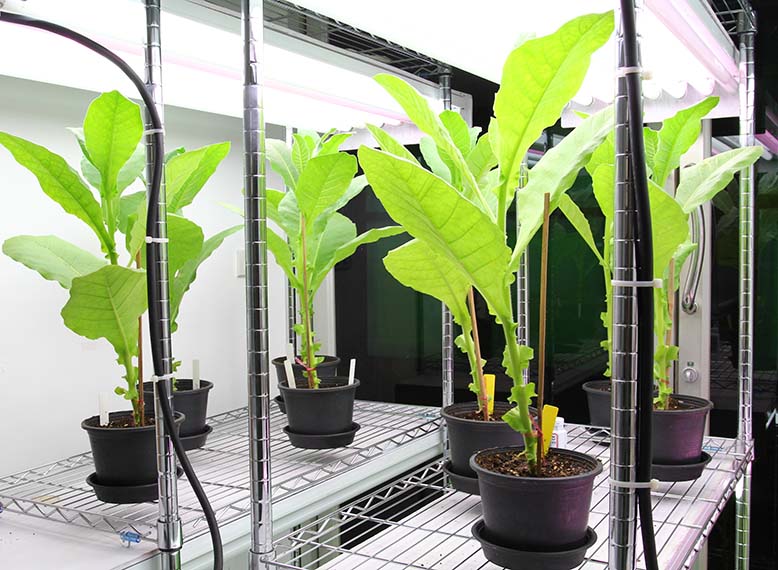
Grow Lights for Citrus
Citrus grows best in direct sunlight therefore it is important to set up this species with conditions that can mimic the same sun exposure it would receive out in the field. Grow chambers allow growers to continue their harvest even when the species is out of season, giving them total control over the weather year-round.
Citrus needs full sunlight for at least 8-12 hours a day. Installing full spectrum fluorescent lights and LED grow lights are great to keep your citrus foliage healthy and happy.
In comparison, HID (high-intensity discharge) grow lights are specially designed for indoor plant growth that may
be suitable for citrus plants; however, they are expensive in nature and more likely used by commercial growers.
Using MH (metal halide) lights will bear successful results.
Grow Lights for Arabidopsis
Arabidopsis is critically used in the field of biotechnology for conducting extensive plant research and genetic experiments. Scientists have been using the arabidopsis plant as the model organism for research for over two decades.
Light is a critical factor in growing arabidopsis in walk-in and reach-in grow chambers. Artificial grow lights such as fluorescent lights, HPS (high-pressure sodium) lamps, and LED lights provide the most suitable lighting requirements. You should go for full-spectrum grow lights that produce a balance of cool and warm light that resembles the natural solar spectrum.
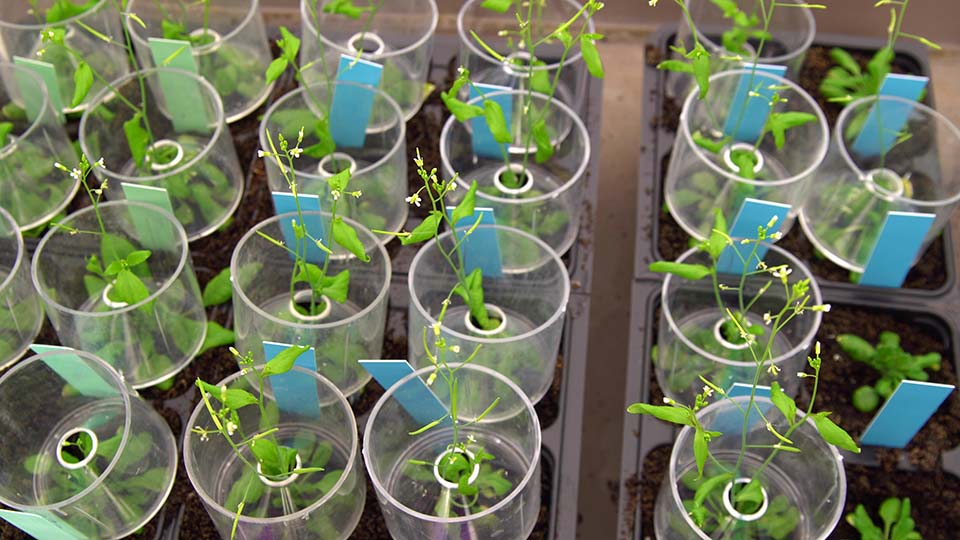
Grow Lights for Cannabis
Cannabis sativa possesses exceptional medicinal benefits. It is a short-day plant, and you have to make sure your plants receive the required light in correct dose and frequency. As cannabis prefers having 12 hours of sunlight in order for it to change from the vegetative growth stage to the flowering stage, setting up the proper conditions within a chamber can help your plants flourish.
The most popular option for growing cannabis is with LED (light-emitting diode) lights, courtesy of their energy efficiency and longevity. LED lamps have a low level of heat emission, which is why you can place them closer to the crop canopy. Always keep in mind to opt for full-spectrum LED lights that come with two settings: red and blue.
Another option is HID lamps that produce more heat. It’s best to maintain good ventilation and two feet of distance from the crop canopy to prevent burning the plants.
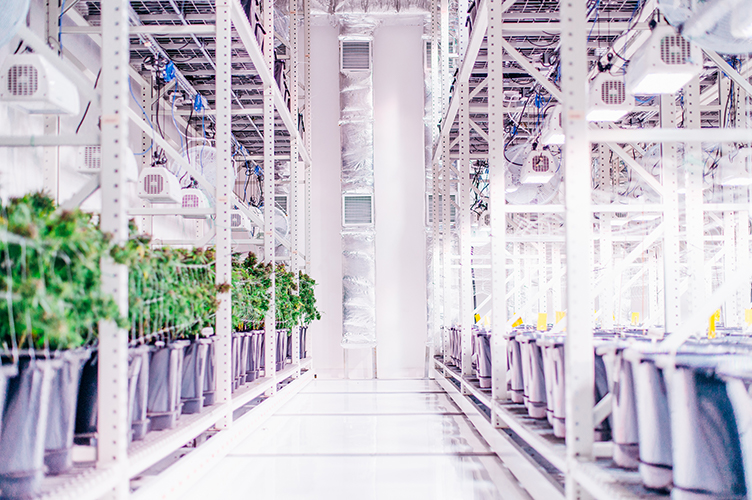
Pictured above: Heliospectra DYNA LED Grow Lights being utilised for cannabis production.
The Bottom Line
When using controlled environment agriculture to simulate the growth of various common plant species, there are a range of factors and conditions that need to be constantly monitored. If you’re looking for the biggest bang for your buck while using an indoor grow chamber, nailing down the appropriate lighting requirements is essential.
At MineARC, our controlled environments for biotechnology and agriculture provide accurate and proven monitoring systems for efficient production of test-controlled and controlled environment agriculture and can be effectively used in a range of use cases. Contact us today for more information about our reach-in and walk-in grow chambers.

